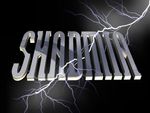Christopher Dudus Coke: Pleads Guilty
 Monday, September 5, 2011 at 2:47AM
Monday, September 5, 2011 at 2:47AM 
Jamaica, the country that brought the world such sportsmen like Usain Bolt and entertainers like Bob Marleyalso has a dark side. That dark side is represented by Christopher "Dudus" Coke.
In August 2009 the U.S. issued an international warrant seeking the extradition of Christopher Coke from Jamaica to face gun and drugs charges in the U.S. He was accused of being the leader and mastermind behind the notorious "Shower Posse" gang which was involved in the international trafficking of drugs and firearms.
For a long time the government of Jamaica resisted the request but finally, bowing to domestic and international political pressure, moved to arrest Mr. Coke in his neighborhood known as Tivoli Gardens.
The residents of Tivoli Gardens were fiercely loyal to Mr. Coke and when the police and army moved in to execute the warrant they met stiff resistance. The residents erected barricades and engaged in gun battles. The confrontation resulted in the deaths of more than 70 people and substantial property damage as the armed forces went door to door in search of Mr. Coke. In the end Christopher Dudus Coke was captured.
In June 2010 he was extradited to the U.S. to face the charges.
On Sept. 2, 2011 Dudus pleaded guilty in a New York court to assault and racketeering charges bringing to an end a two-year international drama between Jamaica and the United States.
Sentencing is scheduled for Dec. 8, 2011 and Christopher "Dudus" Coke faces a possible 23 years in prison.
As noted in the Jamaican Gleaner, the capture and eventual incarceration of Coke was hampered by political considerations. He was not only generous to the people of his neighborhood, Tivoli Gardens, but could be depended on by the political party, the Jamaica Labour Party (JLP) to deliver the votes at election time. In fact Tivoli Gardens is the seat in Parliament of the current Prime Minister, Bruce Golding, who was reluctant to issue the arrest warrant in the first place.
Christopher Coke personifies the kind of threat to the security and democracy of small and vulnerable countries like Jamaica. Control of large amounts of resources, illicitly derived notwithstanding, endow gangsters with the capacity to corrupt the political process and to control many levers of the State by proxy. Indeed, Coke's activities - and the criminal machinations of others - were an open secret in Jamaica.
The newspaper also noted that perhaps Jamaica owes a debt of gratitude to the U.S. for pursuing Christopher Coke, since murders and serious crime have plummeted since his capture and it would have been difficult, if not impossible, for the Jamaican authorities to have him tried and convicted locally.
However, given Coke's political and community connections, underpinned by his ability to distribute largesse and corral votes, it is likely that he would not have been arrested and prosecuted in Jamaica. Such an eventuality would have been made more difficult by the political fault lines in Jamaica.
Christopher Dudus Coke had previously been charged with offenses that carried a sentence of life in prison. When prosecutors approached him and said that they also had evidence that he had ordered the deaths of at least five persons and a judge ruled that tapes of bugged phone calls in which he discusses smuggling marijuana, cocaine and weapons could be played in court, Coke decided to plead guilty to the lesser charges of Conspiracy to racketeer and Conspiracy to commit assault in aid of racketeering.
Coke stood up in court and said:
“I ordered the purchase of firearms and the importation of those firearms into Jamaica in furtherance of this conspiracy”
When asked about his plea Coke said:
“I’m pleading guilty because I am guilty”
US Attorney Preet Bharara said:
“For nearly two decades, Christopher Coke led a ruthless criminal enterprise that used fear, force and intimidation to support its drug and arms trafficking ‘businesses’.
“Today’s plea is a welcome conclusion to this ugly chapter.”
 Christopher "Dudus" Coke,
Christopher "Dudus" Coke,  Dudus,
Dudus,  Jamaica,
Jamaica,  Shower Posse,
Shower Posse,  Tivoli Gardens in
Tivoli Gardens in  Crime,
Crime,  Jamaica,
Jamaica,  News,
News,  Our World,
Our World,  World News
World News 








